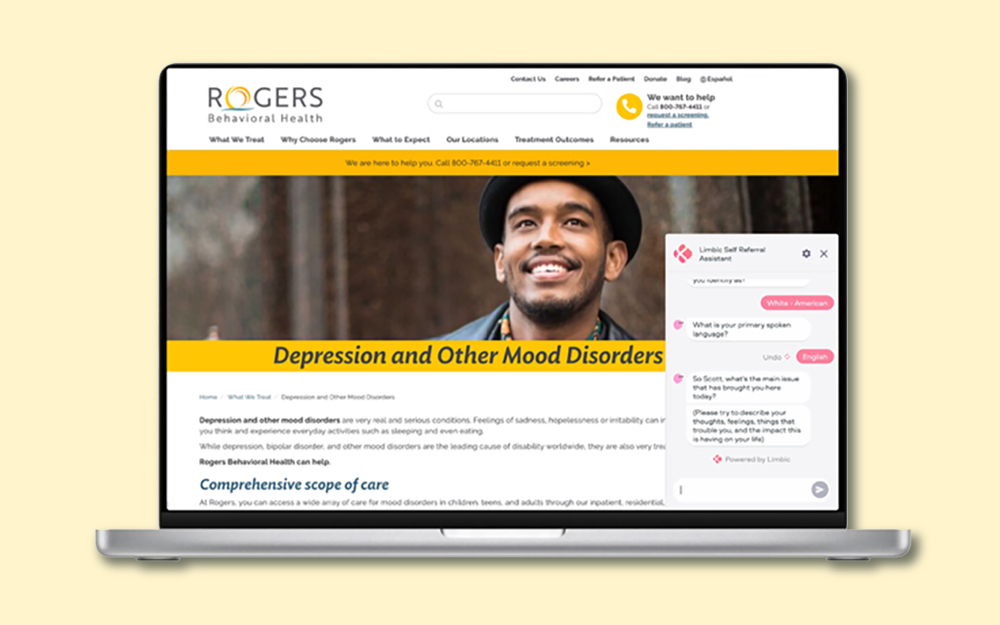
Rogers’ stance on harm reduction
09/14/23 11:30:am
Authored by Michelle Maloney, PhD, system executive clinical director of Addiction Services and Matt Boyer, MD, psychiatrist
As Rogers continues on its path to lead in substance use disorder recovery, it is important that we address, in real-time, the topics, treatments, and realities of substance use disorders. We firmly believe that every person battling addiction deserves compassion, understanding, and access to effective care. Addiction is a complex issue and requires a multifaceted approach that utilizes a wide range of strategies.
“We need to ask the hard questions and address the root issues of addiction,” says Dr. Michelle Maloney, system executive clinical director of Addiction Services. “We can’t achieve our goals without keeping people in the recovery community alive. Substances today are significantly different than they were 30 years ago when we didn’t even give acetaminophen to patients in substance use treatment! With the increased casualties, we need to adapt our approach to addiction treatment.”
One strategy that Rogers advocates for as part of our evidence-based approach, depending on the individual’s needs, is harm reduction.
“Interventions such as medication-assisted treatment can provide the safety needed for patients to focus on their recovery and be present in psychosocial treatment,” explains Dr. Maloney. “Harm reduction is essential to address the immediate risks associated with substance use, protect individuals from life-threatening risks, and open doors to long-term recovery.”
At its core, harm reduction is about saving lives and offering support to individuals who may not be ready or able to pursue complete abstinence immediately. It focuses on minimizing the negative consequences of addiction and engages individuals in a non-judgmental and empathetic way.
Harm reduction can be an integral part of a comprehensive approach to addiction treatment. We value evidence-based practices that combine harm reduction with other interventions, such as counseling, therapy, support networks, and recovery medications. Our aim is to empower individuals to regain control over their lives and find a sustainable path to recovery.
“There’s strong evidence in peer-reviewed literature demonstrating the benefits of harm reduction strategies,” says Dr. Matt Boyer, addiction psychiatrist. “The expectation is that with our evidence-based treatments we treat the whole person.”
The need for dialogue around harm reduction
Critics of harm reduction often argue that success in recovery can only be defined as 100% abstinence. However, this belief has a major flaw.
“For many people struggling with substances, recovery begins with harm reduction, not abstinence. Success is being alive and participating in meaningful conversations,” explains Dr. Boyer.
It’s important to remember that each individual’s recovery journey is unique, and it is our role to understand and respect their needs and priorities.
Dr. Maloney and Dr. Boyer say that among mental health and addiction professionals, it’s important that we have conversations about the topic of harm reduction as these conversations can lead to greater understanding.
“We want to provide other stakeholders the same compassion we do for our patients. We welcome conversation, debate, and differing opinions. We just need to start and continue these conversations and not shy away because they can be uncomfortable. If we ask our patients to stretch into discomfort to grow, we ask our community to do the same.”
The substance landscape has evolved significantly, with new substances and different challenges emerging. To respond effectively, our approach to addiction treatment must also evolve. We have access to evidence-based tools like motivational interviewing (MI), dialectical behavior therapy (DBT), contingency management, and recovery medications, which enhance our ability to help patients. The substances found in the community can kill with one use, which creates the need for other strategies such as fentanyl testing strip so individuals can make sure their substances are not unknowingly laced. Naloxone is needed to prevent death from opioid overdose, and efforts must continue to destigmatize addiction recovery.
A Call to Action
Rogers Behavioral Health remains committed to promoting comprehensive, compassionate, and evidence-based approaches to treat substance use disorders. We invite skeptics of harm reduction to engage with us, ask questions, and explore the evidence supporting its efficacy. Together, let’s work toward a future where every person affected by addiction can find hope, support, and live a fulfilling life in recovery.





